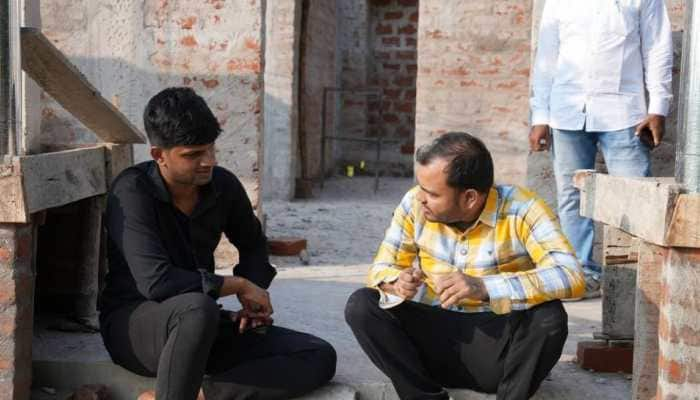WFH for a week, possible lockdown: SC raps Centre, states for pollution woes in Delhi, top points
The Supreme Court sought an action plan from the Centre and state governments within 24 hours, detailing steps taken by task forces to stop air pollution caused by vehicular traffic, construction work, stubble burning, power plants, etc.
- SC ordered the Centre to call an emergency meeting of states and other authorities on Tuesday and chalk out to reduce toxic smog.
- The top court emphasised that action is required to be taken on vehicular pollution, industrial pollution and dust control measures, which contributes nearly 76 percent to the air pollution.
Trending Photos
) (Credits: PTI)
(Credits: PTI) New Delhi: The Supreme Court on Monday (November 15, 2021) directed the Centre to call an emergency meeting tomorrow to discuss measures like stopping non-essential construction, transport, power plants and implementing work from home in wake of the pollution crisis in the national capital and nearby areas.
A bench, headed by Chief Justice N V Ramana, during the hearing said that the centre and states should consider work-from-home for their employees in and around Delhi and farmers should be persuaded to not burn farm waste to cut down pollution.
Here are the important points:
1. The apex court ordered the Centre to call an emergency meeting of states and other authorities on Tuesday and chalk out steps to reduce the toxic smog, adding that the top court would hear the matter again the next day.
2. The Supreme Court termed the capital's air pollution as a "crisis" and pulled up the Delhi government for "lame excuses" and "passing the buck". The court also directed the government to take immediate measures rather than long-term goals.
ALSO READ | Supreme Court names major culprits of Delhi pollution, here's what top court said
3. Solicitor General Tushar Mehta informed the top court that farm waste burning accounted for just 10 percent of the emissions on average through the year.
4. In a significant development, the Delhi government told the court that it is ready to take steps like a complete lockdown to fight air pollution. In an affidavit, the Arvind Kejriwal-led government said, "GNCTD is ready to take steps like complete lockdown to control local emissions. However, such a step would be meaningful if it is implemented across the NCR areas in neighbouring states. Given Delhi's compact size, a lockdown would have limited impact on the air quality regime."
5. The top court also told the state governments to not take action against farmers, rather persuade them to stop stubble burning. "Don`t take action against farmers, persuade them," said the bench.
6. The bench emphasised that action is required to be taken on vehicular pollution, industrial pollution and dust control measures, which contributes nearly 76 percent to the air pollution.
7. The Delhi government also informed the court about the various steps it has taken till now including suspending physical classes in schools this week and ordering the government officials to work from home. The Kejriwal government also advised the private offices to opt for Work From Home and shut down the construction sites for three days.
ALSO READ | Ready to impose complete lockdown to control air pollution: Delhi govt tells SC
8. Earlier on Saturday, Chief Justice NV Ramana called the situation “very serious” and had directed the central government to come up with an emergency plan to tackle the dangerous smog. Asking the centre and states to submit their response by Monday, the Chief Justice said: "You tell us how do you plan to take the emergency measures? Two-day lockdown? What is your plan on lowering the AQI (Air Quality Index) levels?".
9. Air quality in Delhi often ranked the world's most polluted capital and has further declined due to crop stubble burning, emissions from transport, coal-fired plants outside the city and other industries, as well as open garbage burning and dust.
10. On Sunday, Delhi reported an improvement in the air quality, recording a 24-hour average air quality index (AQI) of 330 against 437 the previous day as emissions from farm fires in Haryana and Punjab dropped significantly. The AQI was 471 on Friday, the worst this season so far.
Stay informed on all the latest news, real-time breaking news updates, and follow all the important headlines in india news and world News on Zee News.
Live Tv







)
)
)
)
)
)
)
)
)
)
